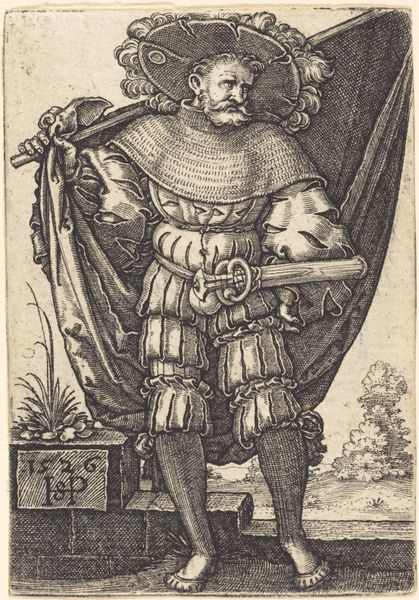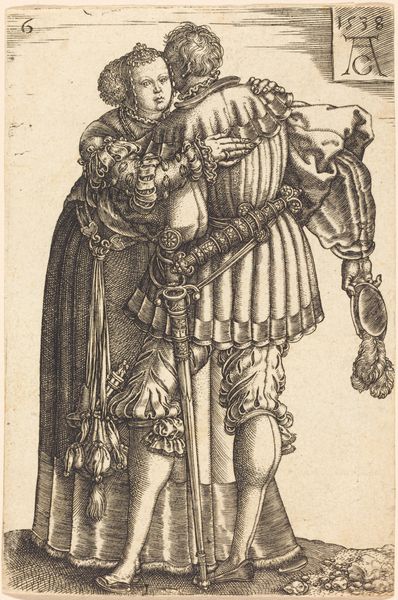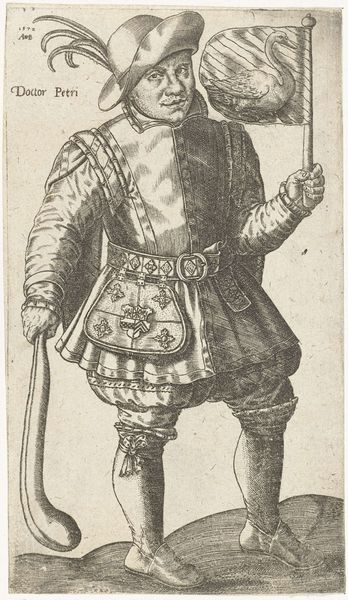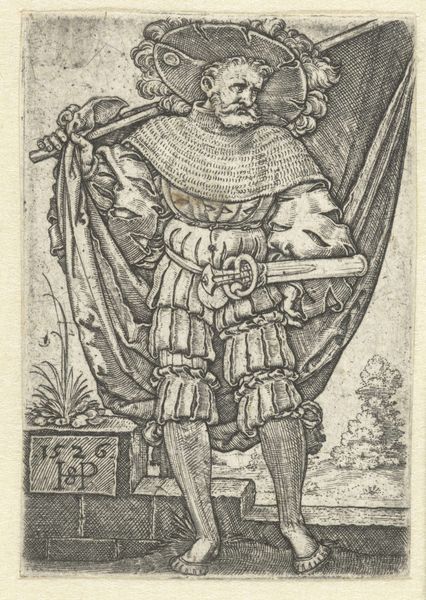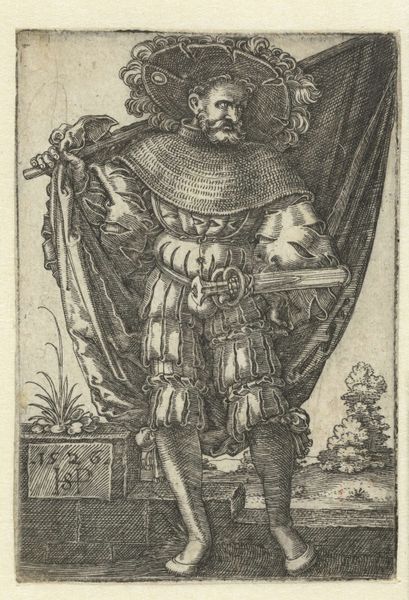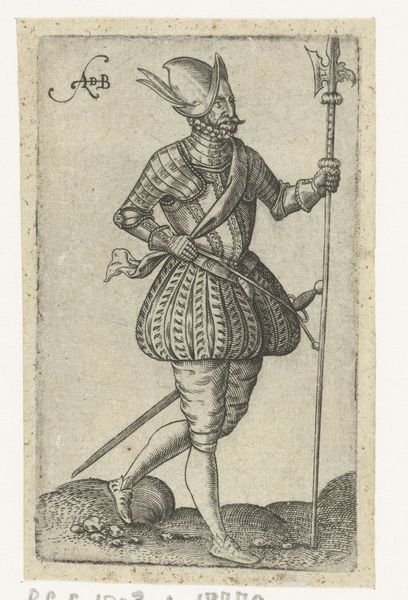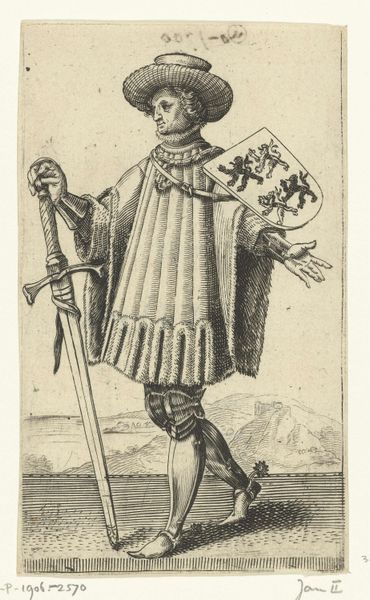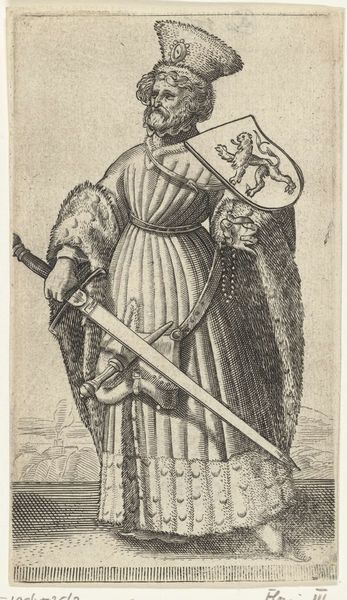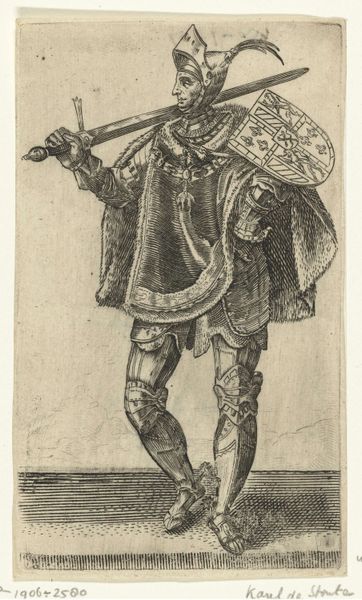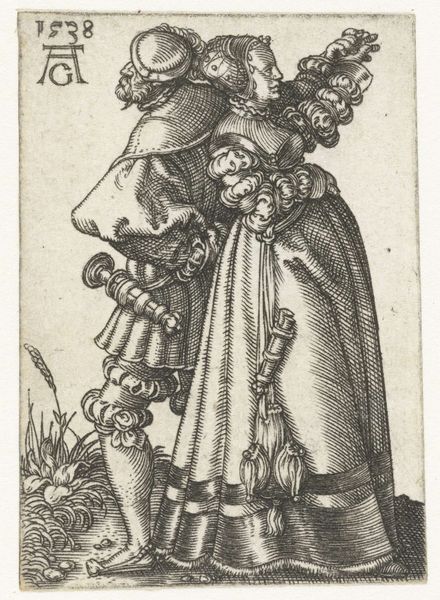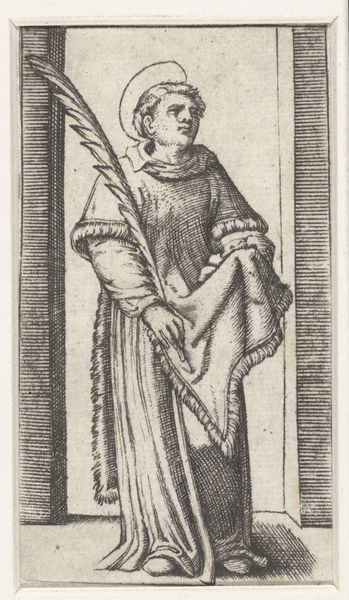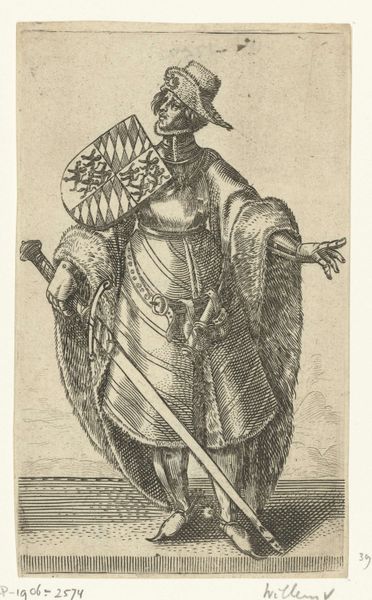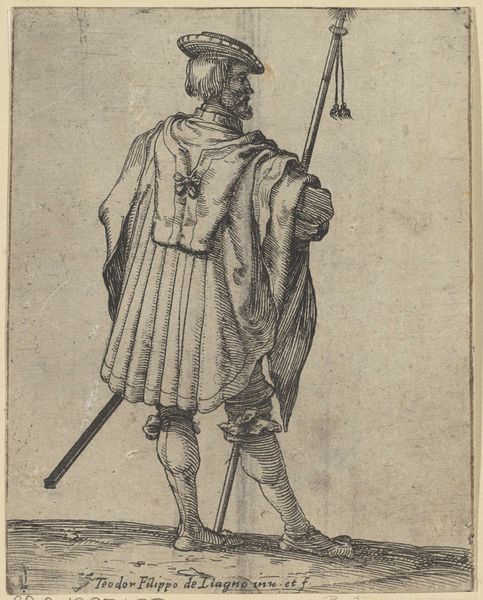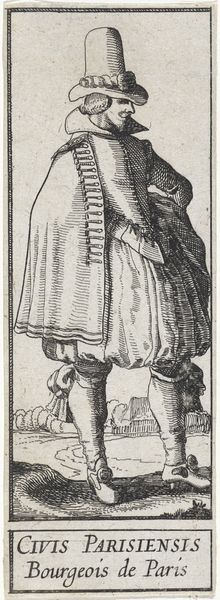
drawing, print, engraving
#
portrait
#
drawing
# print
#
figuration
#
history-painting
#
northern-renaissance
#
engraving
Copyright: Public Domain
Editor: Here we have Lucas van Leyden’s “Libyan Sibyl, from the series of Sibyls,” an engraving created sometime between 1525 and 1535. It's striking how the artist has managed to create such detail and depth using just line work. The figure is so imposing. What aspects of this work stand out to you the most? Curator: The formal qualities are indeed compelling. Observe how van Leyden orchestrates the interplay of light and shadow solely through the density and direction of lines. This, in itself, establishes a rhythm. The hatching technique, varying in thickness and proximity, models the figure and her garments, lending them a sculptural presence. Notice, too, how the sharp lines define not just form but also texture. Editor: The textures are incredibly vivid, now that you mention it. How would you say the composition contributes to the artwork's overall impact? Curator: Note the pyramidal composition—stable, grounded. The figure occupies the majority of the frame, imbuing it with monumentality, but consider the balance, how the sibyl’s gaze, directed slightly off to the side, prevents the image from becoming static. It introduces a tension, an implied narrative. The artist subtly guides our eyes from her headdress, down the length of the staff, to the edge of the composition. What effect do you believe this might have? Editor: I suppose it directs the viewer’s eye to the whole image and prevents it from focusing on one detail, instead presenting it as a totality. Thank you! Curator: Precisely. Consider then the artwork’s deliberate organization as a testament to van Leyden’s artistry. Such masterful command contributes directly to the engraving’s visual power.
Comments
No comments
Be the first to comment and join the conversation on the ultimate creative platform.
